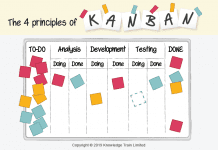
There are 393 private companies around the world classified as unicorns. This term, coined in recent years to reference companies valued at $1B+, has gone mainstream as more startups -normally tech-startups- have been able to reach such outstanding valuation, and the numbers are expected but to keep growing. If we are to weigh in how relevant these companies are for the global business ecosystem, we just need to take a glimpse at their worth and how much money they have been able to raised: these companies are collectively worth more than $1.2T and have attracted a combined total of over $292B in investment.
The thing with the unicorns’ terminology doesn’t stop there. With the growth of new and increasingly powerful companies, new terms have appeared to classify them into new categories. We can’t put in the same list the number one startup in the US, Uber and Spanish-only unicorn Cabify, as Uber’s valuation has reached $62 million last year and Cabify barely made it to the $1 billion mark. That’s why Uber has been added to the decacorn list, or companies valued at over $10 billion or more. Within the 393 total unicorns that there are out there, there are 21 decacorns, including Chinese Toutiao , valued at over $74 billion; Chinese Didi Chuxing, valued at over $56 billion or American JUUL Labs, with over $50 billon of valuation.
However useful and breakthrough Uber might be for the “access economy”, it doesn’t even make it to the top category. In fact, only one startup can bear that privilege. China-based Ant Financial, the offshoot of Jack Ma’s Alibaba Group, is the only company classified as hectocorn, with a valuation of over $150 billion. Its valuation makes it worth considerably more than Goldman Sachs and Morgan Stanley.
All these 393 unicorn companies have been mapped out by CB Insights, using their huge database, and here are some interesting facts they found according to the primary markets in which they operate. Their market map sorted unicorns into 15 categories, from AI to fintech to e-commerce. The other category includes companies within real estate, renewable energy, aerospace, and more.

This is what they found:
Trends by category
The largest category in our map is Fintech, with 12% of unicorns. It is followed by E-commerce and Direct-to-Consumer, Internet Software & Services, and Artificial Intelligence, each with 11%.
The most valuable company in the Fintech category is payments company Stripe, with a $22.5B valuation as of January 2019.
In E-commerce, the most valuable company is California-based online shopping platform Wish, at $11.2B. In Internet Software & Services, Beijing-based online real estate platform Beike Zhaofang leads with a $10B valuation as of July 2019.
Most valuable companies
The world’s most valuable private company is China-based Ant Financial, the offshoot of Jack Ma’s Alibaba Group, with a valuation of over $150 billion. Next off is China’s Bytedance in the Artificial Intelligence category. The company, which operates platforms such as TikTok and Toutiao, reached a $75B valuation following an investment by SoftBank in November 2018.
Following Bytedance, ride-hailing company Didi Chuxing ($56B), e-cigarette maker JUUL Labs ($50B), co-working company WeWork ($47B, though the company is set to go public in the coming months), and accommodations marketplace Airbnb ($29B) round out the top 5 most valuable private companies.
Valuation distribution
Twenty-one private companies (5% of total unicorns) are considered decacorns, worth $10B+.
Approximately 31% of companies included in the global unicorn club are valued at exactly $1B.
Geographic trends
The United States leads in share of unicorns (49%), holding steady since our last analysis in June 2019. China, in second place, saw its share fall slightly from 25% to 24% in the same time frame.
Third and fourth place go to the United Kingdom and India at roughly 5% each, with 20 and 19 unicorns, respectively.

Hernaldo Turrillo is a writer and author specialised in innovation, AI, DLT, SMEs, trading, investing and new trends in technology and business. He has been working for ztudium group since 2017. He is the editor of openbusinesscouncil.org, tradersdna.com, hedgethink.com, and writes regularly for intelligenthq.com, socialmediacouncil.eu. Hernaldo was born in Spain and finally settled in London, United Kingdom, after a few years of personal growth. Hernaldo finished his Journalism bachelor degree in the University of Seville, Spain, and began working as reporter in the newspaper, Europa Sur, writing about Politics and Society. He also worked as community manager and marketing advisor in Los Barrios, Spain. Innovation, technology, politics and economy are his main interests, with special focus on new trends and ethical projects. He enjoys finding himself getting lost in words, explaining what he understands from the world and helping others. Besides a journalist he is also a thinker and proactive in digital transformation strategies. Knowledge and ideas have no limits.








































